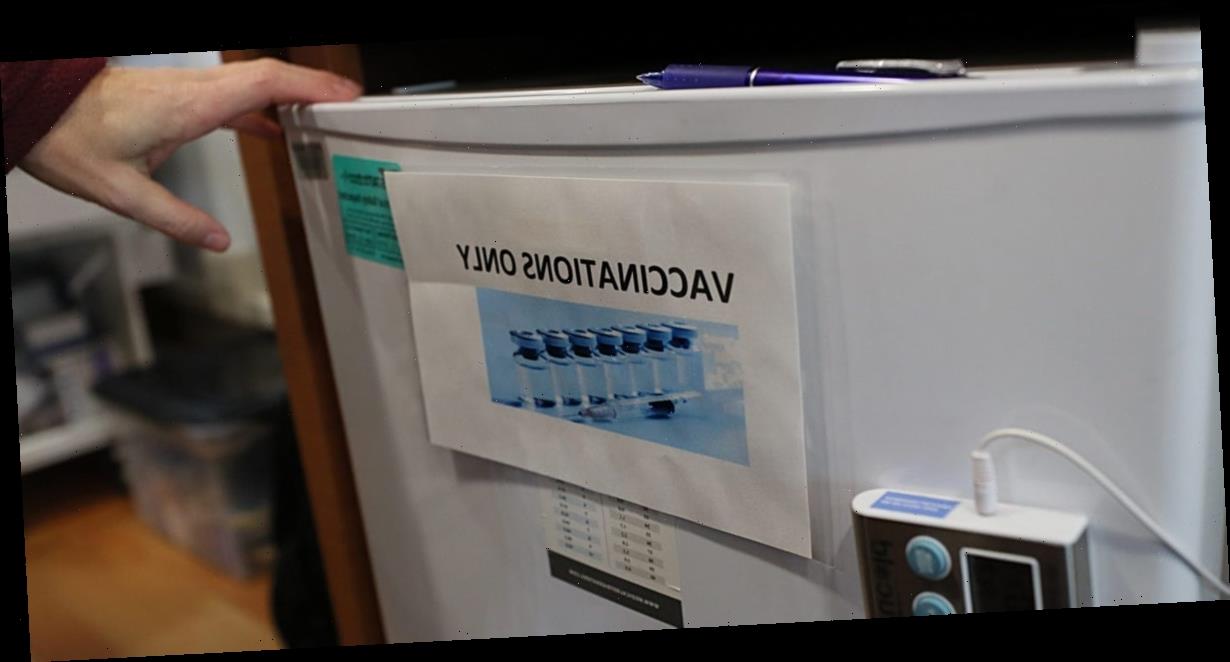- Three billion people may be denied a COVID-19 vaccine when it's here because a number of countries don't have sufficient cold storage facilities, the Associated Press reported.
- Most vaccines need to kept at between 2 and 8 degrees Celsius, but the vaccine candidates from Moderna and Pfizer need temperatures of minus 15 and minus 70 Celsius respectively.
- Parts of Central Asia, India, southeast Asia, Latin America, and "all but a tiny corner of Africa" are most in need of cold storage facilities, the AP reported.
- A vaccine is yet to be approved by the US Food and Drug Administration, with a number of companies nearing the end of clinical trials.
- Other parts of the vaccine supply chain, such as a shortage of glass vials, could also hamper a global inoculation drive.
- Visit Business Insider's homepage for more stories.
Billions of people may have to wait for a COVID-19 vaccine because of a dearth of effective cold storage facilities.
Most vaccines need to be stored, transported, and administered at consistent, cool temperatures, usually between 2 and 8 degrees Celsius.
But a number of trial vaccines nearing the end of clinical trials require far lower temperatures, because they are RNA vaccines — a type of vaccine that carries instructions to cells to build protein.
Those working on RNA vaccines include Moderna, which requires its vaccine to to be stored at minus 15 degrees Celsius, and Pfizer, which has told the US Centers for Disease Control and Prevention that its vaccine must be stored at minus 70 degrees Celsius.
But these stringent requirements may mean countries lacking sufficient cold storage facilities are unable to inoculate their populations in their entirety, according to the Associated Press.
The AP identified parts of Central Asia, India, southeast Asia, Latin America, and "all but a tiny corner of Africa" as the areas most in need of cold storage facilities.
Dr. Alberto Paniz-Mondolfi, a pathologist in Venezuela, told the AP that his country's infrastructure may not be developed enough to see a vaccine delivered to rural areas safely.
"I'm not optimistic on how the vaccine would be distributed in the inner states because there is no infrastructure of any kind to guarantee delivery — or if it gets delivered, guarantees the adequate preservation under cold conditions," he said.
The national vaccination director of Burkina Faso, Issa Ouedraogo, told the AP that the country requires around 1,000 extra clinical refrigerators to store coronavirus vaccines. Only 40% of health centers have reliable fridges, he added.
India is also concerned that it will not be able to safely store enough vaccine doses for its 1.3 billion citizens, given that they may require extremely cold temperatures.
"Most if not all the current frontrunners require extremely stringent cold chains, making them immensely challenging for India to implement," Satyajit Rath, of the National Institute of Immunology (NII,) told the Press Trust of India.
Sam Roscoe, a senior lecturer in operations management at the University of Sussex and a fellow at the UK Trade Policy Observatory, previously told Business Insider: "The World Health Organization, UNICEF, and USAID will have an important role to play in ensuring the current lack of cold storage does not impede the vaccine being distributed around the world."
A September report from the German logistics giant DHL said that "temperature requirements are likely to be the main challenge" to a COVID-19 vaccine rollout.
"Regions with a particularly warm climate and those with limited cold-chain logistics infrastructure will pose the biggest challenge in a stringent vaccine distribution scenario," it said.
In an article in The Conversation, Anna Nagurney, professor of operations management at the University of Massachusetts Amherst, also said the supply chain is currently able to handle the production and rollout of around 6.4 billion flu vaccines a year — which is not enough for the entire world.
"The current vaccine cold chain is not up to the task, and expanding the supply chain is not going to be easy," she said.
Other logistics companies are upping their cold storage capabilities in anticipation.
UPS is constructing two "freezer farms" containing "600 deep-freezers that can each hold 48,000 vials of vaccine at temperatures as low as -80 Celsius," Bloomberg reported.
And a mission to ensure that the world's poorest do have access to a vaccine, when it is ready, is already underway.
Covax — which is run by the World Health Organization, Gavi, the Vaccine Alliance, and the Coalition for Epidemic Preparedness Innovations — aims to administer two billion doses to the world's poorest by 2022.
Covax plans to prioritize vaccines that can be stored at 2 to 8 degrees Celsius, the AP said.
Experts also worry that other parts of the vaccine supply chain are not equipped to handle a global vaccination drive.
For example, there is a shortage of glass vials used to bottle vaccines and fears that there will not be enough cargo planes to transport the vaccine all over the world.
"They can't be left on a tarmac and fought over because they would actually be spoiled and they would have no value — or worse still, people would still be trying to distribute them," Glyn Hughes, the global head of cargo for the International Air Transport Association, told the AP.
Several drugmakers are currently in the final stages of clinical vaccine trials.
Pfizer and BioNTech said last week that they hope to submit their RNA vaccine candidates for emergency-use approval by the US Food and Drug Administration in late November.
Do you have a personal experience with the coronavirus you’d like to share? Or a tip on how your town or community is handling the pandemic? Please email [email protected] and tell us your story.
Get the latest coronavirus business & economic impact analysis from Business Insider Intelligence on how COVID-19 is affecting industries.
Get the latest Pfizer stock price here.
Source: Read Full Article
